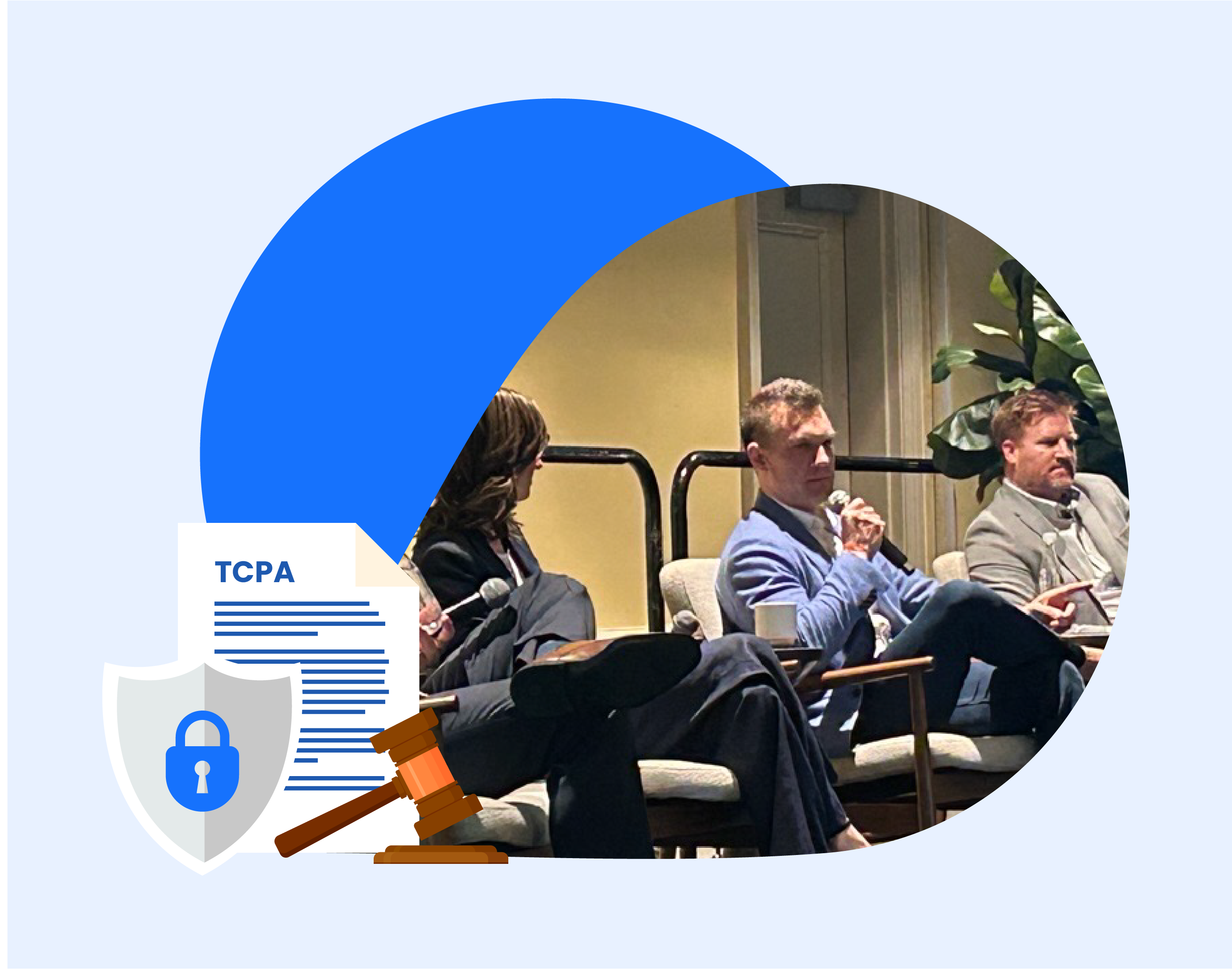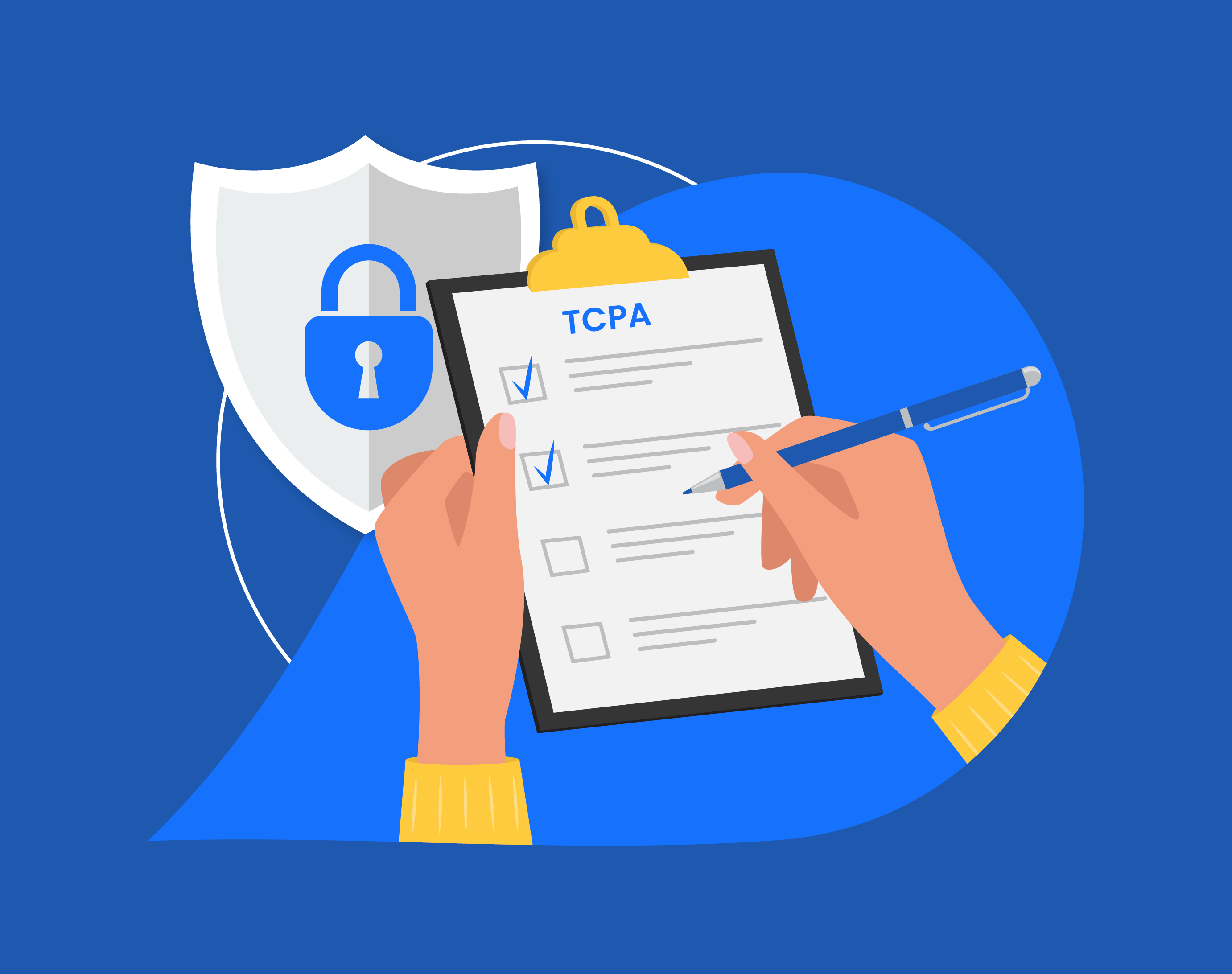Revoking TCPA Consent “In Any Reasonable Manner…” What Does It Mean?
In its February 2024 Report and Order (in CG Docket No. 02–278, FCC 24–24) (“Order”), the FCC underlined changes and clarifications to the rules for automated SMS and phone outreach. One key point of the Order said that after consumers give prior express written consent, they can revoke consent in any reasonable manner. This potentially expands the ways that consumers can opt out of texts and calls. In turn, this opens the door for new compliance issues for certain texting platforms and strategies. Let’s dive in.
New FCC Order
First, let’s look at what the FCC said:
“Specifically, we codify a new rule that will make clear that consumers may revoke prior express consent for autodialed or prerecorded or artificial voice calls and autodialed texts in any reasonable manner that clearly expresses a desire not to receive further calls or text messages, and that callers may not infringe on that right by designating an exclusive means to revoke consent that precludes the use of any other reasonable method.”
That’s a mouthful. In summary:
- The FCC is strengthening people’s right to easily opt out after giving prior express written consent.
- This applies to contact via autodialer (ATDS), prerecorded and artificial voice, and autodialed SMS.
- Businesses that send automated texts may not be able to limit or decide what counts as an opt-out.
New Challenge for Texting Your Audience
Many current texting platforms prompt consumers to opt out using a specific keyword, like “STOP.” With this new ruling, simple approaches like including “Text Stop 2 end” in your SMS messages may not be enough.
In the Order, the FCC ruled that senders must accept certain keywords as a reasonable way for people to revoke their consent. These words are:
- Stop
- Quit
- End
- Revoke
- Opt out
- Cancel
- Unsubscribe
So, as long as texting platforms understand these terms, everything’s fine, right? Well, not so fast.
What Counts as a Reasonable TCPA Opt-Out?
While those keywords must be accepted, the FCC did not say that these are the only opt-out methods businesses need to worry about. In fact, they were clear that this is not the case. Let’s look at another quote from the FCC’s Order:
“This does not preclude, however, the use of other words and phrases to revoke consent. If the reply text contains words or phrases other than those listed above, and should any dispute on this point arise, the text sender, who is responsible for processing the revocation request, will have an opportunity to explain why the consumer’s use of alternative words or phrases does not constitute a reasonable means to revoke consent.”
This means that the definition of “reasonable manner” is still fairly open. Importantly, the burden of showing that a specific method isn’t reasonable falls on you, the business sending the campaign.
People Don’t Text Like Machines
Things would be simple if people expressed their desire to opt out in a predictable way. But people don’t text like robots. Let’s look at a few examples of the ways we’ve seen users text in practice:
- “stahp it”
- “cancle"
- “I’m not John, don’t text me”
- “Please don’t text anymore, not interested”
- “No 🤬🤬🤬”
None of these texts match words from the FCC’s list. And yet, any human reading these texts would understand that the text recipient no longer wants to be contacted. By that definition, these could all very likely be considered “reasonable means” to revoke consent under the FCC’s Order.
Not convinced? When we looked at our own data from real consumer conversations, the results were clear. Of all the opt-out messages we tagged as “explicits” — meaning upset consumers with a negative sentiment — only 21.2% used a standardized keyword (Drips CaaS Data, Month of April 2024). That means relying on these keywords would miss four out of five of these consent revocations. That’s a huge risk!
Even when you look at more calm and collected consumers (which we tag simply “unsubscribes”), only 44.8% used a standard keyword (Drips CaaS Data, Month of April 2024). Overall, our data shows that enterprises are likely to miss a significant majority of opt-outs if they rely only on the FCC keywords.
It’s too soon to know how the courts would rule for non-standard opt-outs like these. However, just the fact that complaints — or even lawsuits — are on the table is concerning for organizations who need to reach their audiences. This is not a risk that enterprises want to take.
A Conversational Approach to TCPA Consent Revocation Requests
Legacy texting platforms are never going to be able to understand the thousands of ways real people request an opt-out. However, it is possible to handle these requests at scale with the right approach.
Drips solves this problem with our natural language understanding technology, extensive experience, and data built from billions of real-world touchpoints. We built a proprietary language model that powers a specialized service for TCPA consent and preference management. We call it Disqualified by Drips.
Why should enterprises invest in Disqualified by Drips?
- Benefit from our proprietary database of double-blind, hand-approved “hot” terms that signal an opt-out request.
- Opt-outs aren’t black and white. Disqualified by Drips can determine when the user may only wish to opt out of one campaign but remain engaged with another.
- When users report that they aren’t the intended recipient, Drips reports that insight so you can improve record quality and assess your lead sources.
More information is to come soon on the availability of Disqualified by Drips for our clients. If you’re interested, please contact us here.
Your Partner for Compliant Customer Engagement
Here at Drips, one of our guiding principles is “Keep It Safe.” That’s why we stay at the leading edge when it comes to outreach that is effective AND uses strong compliance guardrails.
If you’re ready to get ahead of the curve on TCPA compliance, schedule a call with our team today. We’re ready to help you exceed your marketing goals while leveraging the latest compliance technology.
Disclaimer: This blog and all information contained in it are for educational and informational purposes only. Neither Drips nor any of the writers in this blog are law firms or attorneys, and nothing herein should be construed as or relied on as legal advice. Drips and the authors herein disclaim any obligations relating to the timeliness or accuracy of the information contained here. No warranties should be implied. Although intended to be current and accurate, regulations and court rulings, as well as interpretations of the same, are always changing and we recommend consulting with your own counsel.







